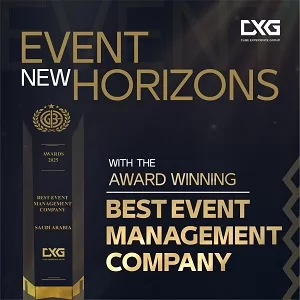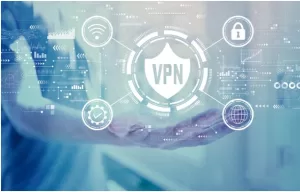Can video games boost team productivity?

In the rapidly evolving landscape of workplace dynamics, an unconventional player has emerged: video games. Traditionally seen as a form of entertainment, video games are now being recognized for their potential to enhance team productivity and collaboration. Picture a scene where colleagues, usually huddled around conference tables, are instead navigating virtual challenges together, fostering teamwork and communication in a setting far removed from the usual office environment. This introduction delves into the intriguing concept of video games not just as a pastime, but as a novel and engaging tool in the arsenal of team-building strategies.
The psychology behind gaming and team dynamics
Video games, often perceived solely as entertainment, harbor a deeper psychological impact that can be leveraged to enhance team dynamics and productivity. Central to this is the concept of flow, a state of heightened focus and immersion proposed by psychologist Mihaly Csikszentmihalyi. When team members engage in video gaming, they often experience this flow state, characterized by a sense of unity and increased focus on tasks. This shared experience can translate into better teamwork, as members learn to navigate challenges collaboratively and communicate more effectively. Furthermore, the principles of gamification, which include goal setting, receiving immediate feedback, and reward systems, align closely with motivational theories in psychology. These elements, when embedded in video games, can significantly boost a team’s engagement and motivation, fostering a sense of achievement and camaraderie.
Moreover, studies have shown that video games can enhance cognitive skills crucial for effective teamwork, such as problem-solving, decision-making, and creative thinking. For instance, strategy-based games demand players to make quick decisions and adapt to new scenarios, skills that are invaluable in a fast-paced work environment. Similarly, cooperative games require players to communicate and strategize together, directly translating to improved teamwork skills. These games also offer a safe environment for team members to experiment with different roles and leadership styles, promoting flexibility and understanding within the team. By tapping into these cognitive benefits, video games can serve as a powerful tool for developing a more cohesive, adaptable, and effective team.
Real-world examples
Incorporating video games into the workplace for team building and productivity enhancement is a strategy employed by several notable companies. For example, the technology consultancy firm Booz Allen Hamilton has explored using augmented reality and virtual reality technologies, initially developed for online gaming, for innovative team building activities. These technologies are envisioned to create virtual meetings and simulations that offer a more immersive and connected experience for employees and clients, especially in remote work settings.
Another significant example is the use of Jackbox Games, particularly in remote and hybrid work environments. The CEO of Jackbox Games, Mike Bilder, mentioned how their games, designed as digital board games, have been effectively used for team building and as ice breakers in various companies. These games have facilitated not just keeping employees connected but also enhancing collaborative efforts and creativity in the workplace. The positive impact of such gaming activities on office culture, especially during the COVID-19 pandemic, is notable, as they provide a fun and engaging way to maintain team dynamics and social skills in a virtual setting.
These real-world examples from prominent companies like Booz Allen Hamilton and those using Jackbox Games illustrate the practical application and benefits of video games in fostering teamwork, enhancing creativity, and maintaining a positive work culture in both physical and remote work environments.
Potential challenges and criticisms
Introducing video games as a team productivity tool presents notable challenges and criticisms. Primarily, there’s a risk of distraction, as engaging in games could shift focus away from work tasks, impacting overall productivity. Furthermore, not all employees might be receptive or skilled in gaming, potentially leading to feelings of exclusion or ineffectiveness in team-building efforts. Additionally, excessive gaming can raise concerns about addiction and its consequent impact on mental health and work-life balance. Lastly, in a remote work context, over-reliance on virtual interactions through gaming might hinder the development of deeper, in-person team relationships, an aspect critical to comprehensive team dynamics. These potential drawbacks underscore the need for a balanced and thoughtful implementation of video games in professional settings.
Strategies for effective implementation
For effective implementation of video games as a tool to boost team productivity, it’s crucial to establish clear guidelines and boundaries. Selecting games that align with team objectives and skills is key; opt for games that encourage collaboration and strategic thinking for a diverse range of players. It’s also important to schedule gaming sessions judiciously to avoid encroaching on work time, perhaps integrating them into regular team-building activities or as a structured part of break times. To ensure inclusivity, provide options for different skill levels and interests, and consider non-gaming alternatives for those less inclined towards video games. Monitoring the impact of these gaming sessions on team dynamics and productivity is essential to assess their effectiveness and make adjustments as needed. This thoughtful approach can help balance the benefits of gaming in the workplace with the need to maintain professional focus and inclusivity.
Conclusion
In conclusion, the integration of video games into the workplace as a tool for enhancing team productivity presents a fascinating blend of innovation and challenge. While they offer a unique platform for developing teamwork, communication, and problem-solving skills, it’s important to navigate the potential pitfalls carefully. The key lies in strategic implementation, mindful of employee diversity and work-life balance. As the professional world continues to evolve, the exploration of such unconventional methods could pave the way for more dynamic and cohesive work environments, fostering a culture where productivity and enjoyment coexist harmoniously.



























